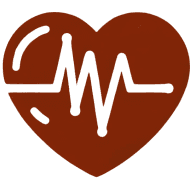What Are Unique Approaches to Treat Challenging Cases of Heart Disease?
In the intricate field of cardiology, professionals face a myriad of challenging cases that push the boundaries of medical science, as described by a Structural and Interventional Cardiologist who utilized multimodality imaging in their work. Alongside this expert perspective, we've gathered additional innovative approaches that have been pivotal in treating complex heart diseases. From the precision of robot-assisted heart surgery to the futuristic promise of nanotechnology for targeted drug delivery, discover the unique strategies at the heart of cardiology.
- Multimodality Imaging in Interventional Cardiology
- Gene Editing Techniques for Heart Disease
- Stem Cell Therapy for Cardiac Regeneration
- Benefits of Robot-Assisted Heart Surgery
- AI Predicts Heart Disease Treatment Outcomes
- Nanotechnology for Targeted Drug Delivery
Multimodality Imaging in Interventional Cardiology
It is not uncommon to encounter challenging cases, especially in interventional cardiology. Pre-procedural planning with multimodality cardiac imaging helps tremendously. Navigating variable anatomies in structural procedures with the appropriate tools is paramount for procedural success and patient safety.
Gene Editing Techniques for Heart Disease
Pioneering gene editing techniques, such as CRISPR-Cas9, offer a revolutionary approach to treating heart disease by directly correcting the genetic anomalies at their source, thus potentially reducing or eliminating the root cause of the ailment. By carefully targeting and modifying the responsible genes, scientists aim to improve cardiac function without the side effects associated with conventional drugs. This method is still in the experimental phase, but the possibilities it presents are vast, and could change the landscape of heart disease treatment.
The future of gene editing offers hope to individuals for whom traditional therapies have proved ineffective.
Stem Cell Therapy for Cardiac Regeneration
The use of stem cells to regenerate heart tissue represents a significant stride in the realm of regenerative medicine. Stem cells have the unique ability to develop into various types of cells, which means they can be used to repair or replace damaged heart tissue, leading to improved heart function. This approach is particularly promising for cases of heart disease that are not amenable to typical treatments like surgery or medication.
Clinical trials are underway to determine the efficacy and safety of stem cell therapies for heart disease, and the results could herald a new era in medical treatment.
Benefits of Robot-Assisted Heart Surgery
Robot-assisted surgery is a technique that utilizes robotic systems to assist surgeons in performing complex heart operations with increased precision, stability, and control. By providing surgeons with enhanced visualization and meticulous manipulation of surgical instruments, these robotic systems can lead to less invasive procedures, reduced pain, and quicker recovery times for patients. This approach is particularly beneficial for intricate cardiac surgeries that require fine detail and steadiness beyond the capability of the human hand.
As technology advances, so does the potential for robot-assisted surgeries to improve patient outcomes.
AI Predicts Heart Disease Treatment Outcomes
Advanced artificial intelligence (AI) is being employed to predict treatment outcomes for heart disease by analyzing large volumes of medical data and identifying patterns that might not be apparent to human doctors. This can lead to highly personalized treatment plans and better predictions of how patients will respond to various therapies. AI has the potential to tailor treatments to an individual's specific conditions, improving the chances of success and reducing the risk of adverse reactions.
As these systems become more sophisticated, they could play a crucial role in managing heart disease.
Nanotechnology for Targeted Drug Delivery
Nanotechnology is creating new horizons in the treatment of heart disease through the development of minuscule, targeted drug delivery systems. These nano-scale particles can be designed to deliver medication directly to the affected heart cells with increased precision, thereby maximizing the therapeutic effect while minimizing potential side effects. This localized approach to drug delivery could revolutionize the way heart disease is treated, making medications more effective and reducing the burden for patients.
Though still an emerging field, nanotechnology in medicine is rapidly evolving and offers considerable promise for those with heart conditions.

